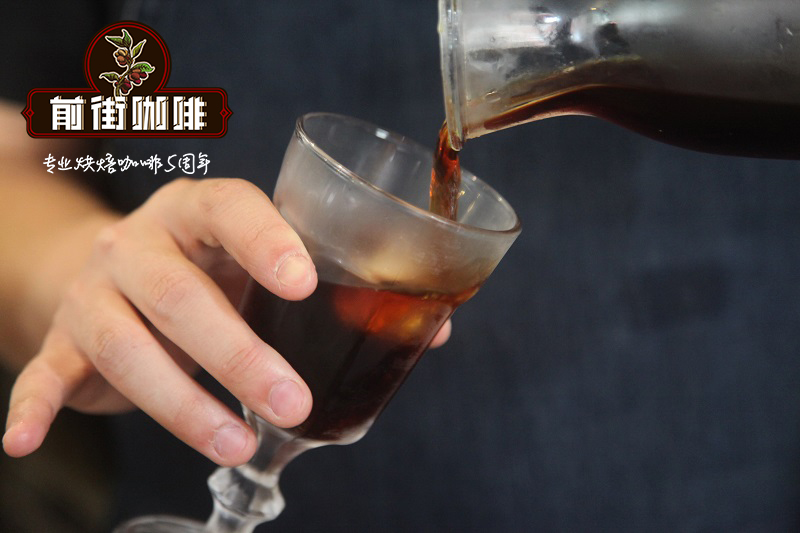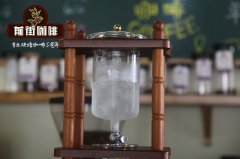The Development History of Fine Coffee in Taiwan Taiwan has also begun to develop eco-tourism in boutique coffee farms.

Since the introduction of coffee seedlings by the British in 1884, Taiwan coffee has been rooted in Taiwan for a hundred years, and it has encountered many ups and downs in recent years. It has been revived in recent years. From time to time, it is mentioned in the news that Taiwan coffee has made great achievements in foreign evaluation, or coffee competitions in China have made a lively debut. Here's a look at the trend of Taiwan coffee in recent years.
At present, the development of fine coffee is divided into three major producing areas.
Due to factors such as geographical environment and expensive labor, the output of coffee in Taiwan is destined to be at a disadvantage compared with the output of third World countries, and only the development of "boutique coffee" can be viable. Han Huaizong, a coffee expert and author of Fine Coffee, says that if you want to become a boutique coffee, according to the standards of the American Coffee quality Association (Coffee Quality Institute, referred to as CQI), only coffee beans with a cup of more than 80 points can be called boutique coffee. The cup test refers to the detection of raw beans and soaking coffee with the same parameters, and the cup tester scores the ten major items such as the flavor and acidity of each bean.
In a broad sense, boutique coffee emphasizes cleanliness (refers to the absence of wood, soil and rancidity). In the current trend, good coffee tastes fruity, such as passion fruit, peach, citrus and so on. Han Huaizong also stressed that the most important spirit of fine coffee is to drink healthily, so in the evaluation, the defect rate of coffee beans is also the focus of examination, and all moldy, rancid, moth-eaten and black beans must be removed so as not to affect their health.
In 2013, the Tainan municipal government, on the suggestion of Han Huaizong, selected Tainan Dongshan coffee evaluation winning beans and sent them to the American Coffee quality Association for evaluation. Two of them were awarded high-quality certification, and since then, producing areas all over Taiwan have followed suit. The current distribution of producing areas, according to the Agriculture and Food Administration of the Council of Agriculture, which is in charge of coffee production in Taiwan, is divided into three major areas, namely, high-altitude producing areas: Alishan in Chiayi, Yunlin Gukeng Shibi area, and some Pingtung Wutai areas. middle and low altitude producing areas: Yunlin Gukeng, Tainan Dongshan, Nantou country surname, Taichung East potential and Equality, Changhua Bagua Mountain, and Pacific sea breeze producing areas: Hualien and Taitung.
The evaluation is fair and accepted, the manor combines ecological tourism.
Observing the list of winners of the "Evaluation of Taiwan's Fine Coffee beans" in recent years, the winners are mainly concentrated in the high-altitude producing areas of Mount Ali and Yunlin Gukeng. The so-called "Evaluation of Taiwan's Fine Coffee beans" is organized by the Council of Agriculture and is a representative annual competition for domestic coffee. The competition is divided into a traditional washing group and other treatment groups (including sun and honey treatment). Contestants are required to hand in raw coffee beans and provide shell beans with the same batch of raw bean samples to identify the inheritance and origin of raw beans. As the evaluation specially hired a cup tester with the certificate of CQI coffee quality appraiser as the review, the fairness was affirmed.
Han Huaizong further explained that due to the geographical and climatic advantages of Taiwan's high altitude (the temperature difference between day and night is large and foggy easily), the density and sugar content of raw coffee beans are higher, and the flavor is richer, but he also mentioned that manors at low and middle elevations can also be on the award list as long as they pay attention to the post-production process.
According to the Agriculture and Food Administration, the coffee production season in Taiwan can be as wide as from December to May of the following year, from low altitude to high altitude. Han Huaizong also mentioned that it is the right time to visit the coffee farm, because no matter what altitude is the harvest season, in addition to watching the coffee harvest, you can also see different post-processing processes such as sun (without removing the peel and pectin of the coffee fruit. The whole fruit is dried), washed (dried with shell beans after washing pectin), and even honey treatment (peeled and dried with pectin).
In addition, coffee farms in Taiwan often mix with fruit trees is also a major feature, some estates also provide farm food, so that visitors can feel different customs at once. Han Huaizong also recommended the "Wularuzi Tribal Coffee Industry Hall" in Dawu Mountain, Pingtung. Although it is not a manor, it is worth visiting, and it is a good place to understand the process of making coffee.
This article is reproduced from the cookbook.
Important Notice :
前街咖啡 FrontStreet Coffee has moved to new addredd:
FrontStreet Coffee Address: 315,Donghua East Road,GuangZhou
Tel:020 38364473
- Prev

How do oatmeal milk lattes suddenly rise? can oatmeal milk really replace milk as a latte?
Just a few years ago, it was hard to find oatmeal milk in any coffee shop. Today, oatmeal milk, as a new online celebrity, is full of coffee shops of all sizes. In the United States in 2017, only 10 coffee shops sold oatmeal milk; fast-forward to 2019, that number soared to 3500. While this kind of super quantitative change is exciting, we can't help but care about what it is.
- Next

Ice drop coffee parameters suggest that you can make delicious and sweet ice drop coffee at home in only 6 steps.
1. The selection of coffee beans ice drop is a way to concentrate and extract coffee, which is suitable for medium-roasted or medium-to-deep-roasted coffee beans; if you use deep-roasted or French-roasted coffee beans, the ice dripping coffee will be too strong and bitter. 2. the thickness of coffee powder is suitable for ice droplets. the thickness of coffee powder is the same as that of hand-brewed coffee, as long as the coffee powder is ground by 3: 5 on a bean grinder.
Related
- What grade does Jamaica Blue Mountain No. 1 coffee belong to and how to drink it better? What is the highest grade of Blue Mountain coffee for coffee aristocrats?
- What are the flavor characteristics of the world-famous coffee Blue Mountain No. 1 Golden Mantelin? What are the characteristics of deep-roasted bitter coffee?
- Can I make coffee a second time in an Italian hand-brewed mocha pot? Why can't coffee be brewed several times like tea leaves?
- Hand-brewed coffee flows with a knife and a tornado. How to brew it? What is the proportion of grinding water and water temperature divided into?
- What is the difference between Indonesian Sumatra Mantinin coffee and gold Mantinin? How to distinguish between real and fake golden Mantelin coffee?
- What does bypass mean in coffee? Why can hand-brewed coffee and water make it better?
- Unexpected! Ruixing Telunsu lattes use a smoothie machine to foam milk?!
- % Arabia's first store in Henan opens into the village?! Netizen: Thought it was P's
- Does an authentic standard mocha coffee recipe use chocolate sauce or powder? Mocha Latte/Dirty Coffee/Salty Mocha Coffee Recipe Share!
- What is the difference between Vietnam egg coffee and Norway egg coffee? Hand-brewed single product coffee filter paper filter cloth filter flat solution!

